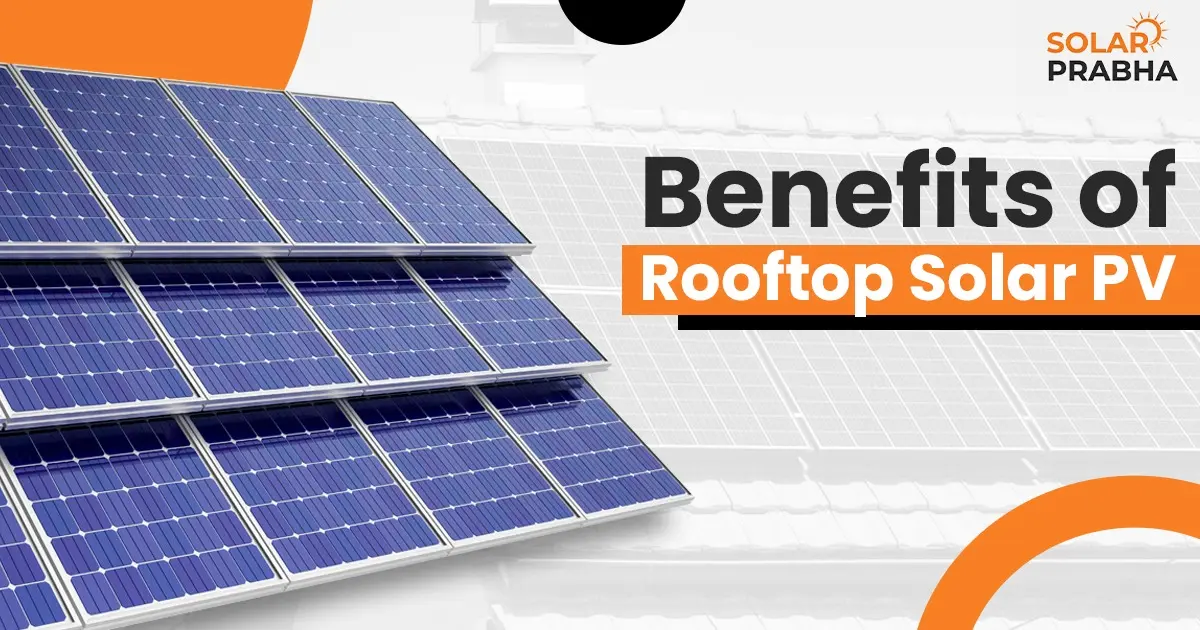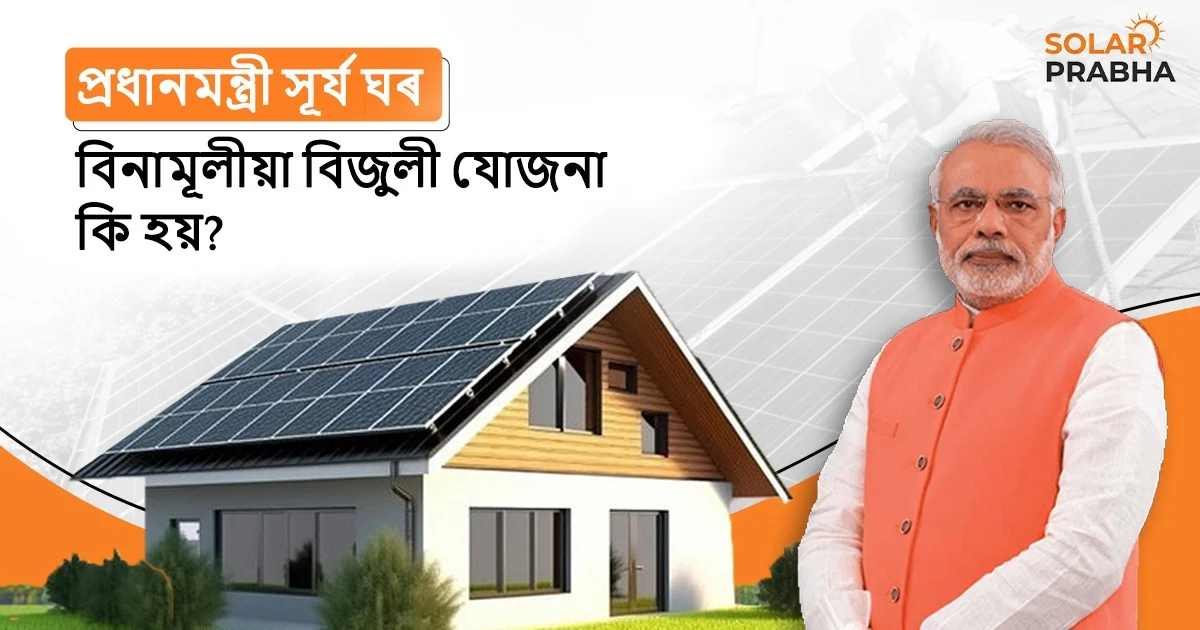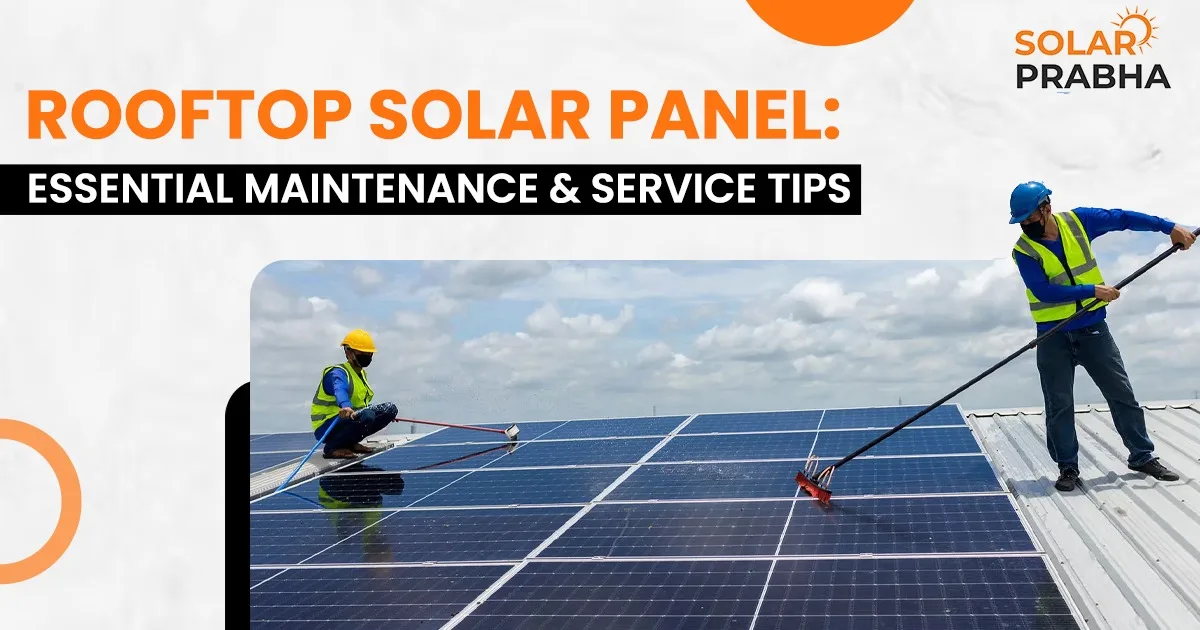When it comes to solar panels, one of the largest questions is whether they function on cloudy days or during the night. When you are investing in solar power, you would like to know whether it will give you energy on a rainy day or during the night. This is an easily comprehensible question for people residing in Guwahati, Assam, where frequent rainy seasons might lead to some consideration regarding whether your solar system will function.
Actually, solar panels do function even when it’s cloudy, and during nighttime, there are a few things to take note of, though, for the system to be efficient. In this article, we will see how solar panels function when the sun is shrouded in clouds, what occurs when the sun sets, and how you can utilise your solar energy system to keep the lights on no matter the weather. So let’s begin!
The fact that solar panels do not need direct or full sun in order to create power amazes most solar shoppers. The panels will produce less energy when there is cloud or an overcast sky, but they will continue to produce energy. Naturally, they do not produce energy during nighttime; however, there are easy methods for storing the power created during daytime, for later usage.
In the following sections, we will describe in detail how solar panels produce energy and operate, and how you can optimise your solar system’s output, no matter what the weather is. Mother Nature gives you.
Do Solar Panels Work on Cloudy Days?
Most likely, the most frequent question we receive is Do solar panels work on cloudy days? The answer, briefly, is yes, solar panels work on cloudy days. Their efficiency will decline with reduced sunlight, but they still generate energy. Let’s examine in more detail how much efficiency solar panels lose and what you can expect from them with cloudy skies.
The Impact of Cloud Cover on Solar Efficiency
Clouds may either reflect or diffuse the sun that reaches your solar panels. Solar panels may collect diffused sunlight, the sun that gets scattered by the atmosphere and clouds. So even when it was highly cloudy outside, your solar panels would still be working, though at lower rates.
The amount of efficiency that your solar panels will lose on cloudy days depends on the type and thickness of the clouds. Here is a summary of how differing amounts of cloud cover can affect the performance of solar panels:
- Light Cloud Cover: During days with light cloud cover, solar panels can produce at a level of about 80% to 90% of their maximum capacity. Light clouds diffuse sunlight without obstructing too much of it.
- Moderate Cloud Cover: If the clouds are thicker, although not completely obscuring the sunlight, solar panels will generate 50% to 60% of their usual capacity. This is typical for most areas of the globe with unreliable weather conditions.
- Heavy Cloud Cover: When the sky is completely or largely covered with dense clouds on a given day, solar panels may only generate 10% to 25% of their normal power output. This doesn’t imply that they shut down; they simply produce much less power.
Can Solar Panels Generate Power on Rainy Days?
Rainy conditions do not halt the functionality of solar panels entirely. Although the sky is usually filled with clouds, and the sun’s light is scattered, solar panels are able to receive the diffuse sunlight and generate energy. Rain can even benefit the functionality of solar panels in some cases.
- Panel Cleaning: Rain serves to wash away dust, dirt, and other debris that accumulate over time and make the solar panels efficient again later, when the weather is not so cloudy and the panels are clean.
- Less Dust and Pollution: There are considerations for dust and air pollution in most areas, and rain acts to “wash” these particles out of the air that would otherwise cast a shadow on the solar panels and keep sunlight from reaching them. Your solar panels can usually operate better following a rainstorm.
Do Solar Panels Work at Night?
The next logical question is, do solar panels work at night? Solar panels depend on sunlight to produce electricity and therefore produce no energy at night. There are multiple ways to ensure your home or business can continue to use solar energy even when the sun dips below the horizon.
Solar Energy Storage Solutions
Many solar systems utilise battery storage to equalise the production of daytime solar electricity and nighttime consumption of electricity. A solar battery allows you to capture excess energy generated and use it at night. With battery storage, the energy produced by your solar panels can be stored in the battery for later use when your solar panels are not producing electricity.
There are a variety of types of solar batteries you can choose from; the most common are:
Lithium-Ion Batteries: Led by their efficiency and longevity, lithium-ion batteries are primarily used in modern solar implementations.
Lead-Acid Battery: These batteries are cheaper than lithium batteries but heavier and have a short lifespan.
Saltwater Batteries: An up-and-coming eco-friendlier choice that still offers performance without the dangerous heavy metals that lithium-ion and lead-acid have. They are still in development.
By adding a solar battery, you can now have energy storage, giving you solar power even after the sun stops shining, reducing your need for grid power.
Grid-Tied Solar Systems
A different option for a continuous supply of power at night would be to use a grid-tied solar system. In a grid-tied system, the extra energy your solar panels create during the day is sent back to the grid through net metering. The utility company will give back some credit for the power you put back into the grid. You can use that credit later when the power of the sun is absent.
During the night, or when your panels are not producing enough energy, you can draw electricity from the grid to meet your needs instead of running out of power. This way, you never run out of power and your home or business will always have power.
Optimizing Solar Panel Performance in Cloudy Regions
In parts of the world, like Guwahati, Assam, where cloudy days occur more often, it is important to optimize your solar energy systems to make sure they are performing effectively. There are numerous techniques to maximize the output of your solar panels in cloudy conditions and increase the efficiency of your system generally.
1. Invest in High-Efficiency Solar Panels
Investing in high-quality, high-efficiency panels is one of the best ways to guarantee that your solar panels will perform at a high level on cloudy days. Monocrystalline solar panels offer high energy conversion rates and perform better than polycrystalline panels in low-light conditions.
It’s important to realize that while polycrystalline panels can perform well, monocrystalline panels are generally a better choice because they can do a better job of capturing diffuse sunlight on cloudy days.
Investing in the best quality high-efficiency solar panels will make sure that your system will perform well, whenever the sun is brightest.
2. Utilize Solar Battery Storage
As previously noted, integrating a solar battery gives you the option to store energy produced from sunny periods or daylight periods where the sun was not completely obscured by clouds. When a battery is installed, you can tap into solar power at night or during cloudy periods, without grid dependency.
3. Consider Microinverters
Microinverters are small technology that substitutes a normal inverter parallel to each solar panel, allowing them to maximize the energy production of the individual panel. This is advantageous in the instances of shading with clouds, trees or buildings neighbouring when collaborating the individual furnaces together. With a microinverter, the panels are allowed to operate as individual panels, so the shading has less effect overall, and the entire system would be its best they could.
4. Regular Maintenance and Cleaning
It’s important to maintain your solar panels in order for them to work effectively over time. By regularly cleaning your panels and checking for damage, you can help ensure that dust, dirt, and other impediments won’t affect their output. You can also get algae and moss growth on the panels if you live in an area with a lot of rain, and cleaning them can help prevent this.
Key Takeaways
- Cloudy Days: Solar panels will provide energy under cloudy conditions, though slightly less energy, depending on how much cloud cover is present.
- Nighttime: Solar panels do not produce energy at night, but energy storage systems, such as batteries or grid-tied systems, ensure that you get a continuous power supply.
- Optimisation: High-efficiency solar panels and battery storage, whilst regular maintenance can help optimise performance in an area with cloudy conditions.
Considering Solar Energy in Guwahati? Get in Touch with Solar Prabha!
If you’re thinking about installing a solar system in Guwahati or in any area with changing or inconsistent weather, it is crucial to work with local solar vendors who understand the unique challenges associated with cloudy and rainy conditions.
At Solar Prabha, we are experts at crafting solar solutions that are tailored to the energy needs of our clients. It does not matter if you’re in Guwahati, Assam, or any other area; our team of experts can help you harness the energy of the sun, whether it is a sunny day or cloudy skies, or if you would like to use energy storage or backup systems at night.
We pride ourselves on providing consultations, installations, and financing solutions so that the system works for you.
Reach out to us today at +91-7099030047 to learn more about how solar energy can be harnessed to provide power for your home or business, even in the most adverse weather systems. Allow us to help you make responsible and sustainable choices!





